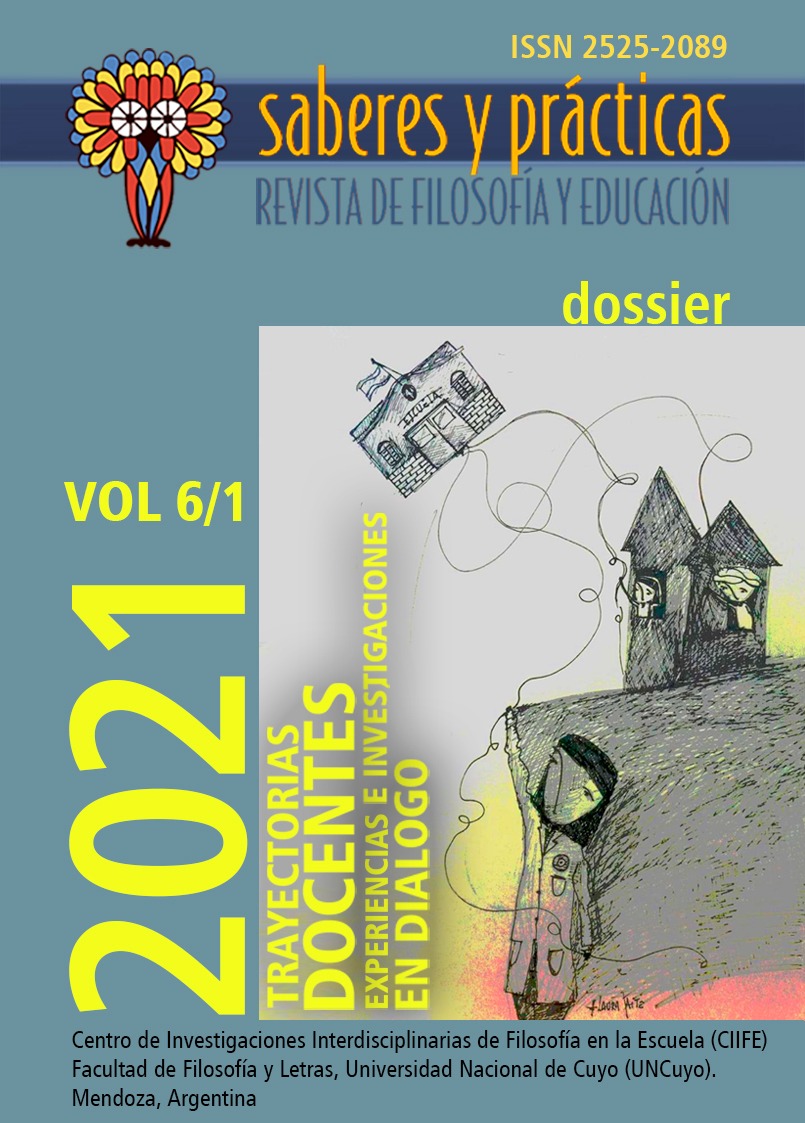Neopragmatism and education
About the Inferentialist Approach to Learning
DOI:
https://doi.org/10.48162/rev.36.005Keywords:
Neopragmatism, learning, inferentialism, Derry, BrandomAbstract
In this article, we analyze the "inferentialist approach to learning" proposed by the education philosopher, Jan Derry, who brings the theory of semantic inferentialism developed by the neopragmatist philosopher Robert Brandom into the educational field. Although there are elements that make this application feasible, as far as we are concerned, there are no papers that study this project. We highlight two specific limitations and one general limitation to this approach. Regarding the specific limitations, the inferentialist approach, first of all, offers a concept possession criterion and this is not comparable to a learning criterion; secondly, the essential practical-political dimension of learning is completely absent in this approach. The general limitation, on the other hand, is related to the pre-eminence of language over experience as a main feature of various contemporary neopragmatism.
Downloads
References
Alexander, T. (2013). Eco-Ontology and the Aesthetics of Existence. Fordham University Press.
Bakhurst, D. (2011). The formation of the reason. Wiley-Blackwell.
Baquero, R. (2017). Desarrollo subjetivo, prácticas educativas y prácticas escolares. Los enfoques socioculturales como herramienta de análisis. Revista de Didáctica. Psicología Pedagógica Uberlândia, 1(2), 291-309.
Berstein, R. (2013). El giro pragmático. Siglo XXI.
Brandom, R. (2011). Perspectives on Pragmatism. Classical, recent and Contemporary. Harvard University Press.
Brandom, R. (2005) Hacerlo explícito. Herder.
Brandom, R. (2002). La articulación de las razones. Siglo, XXI.
Del Castillo, R. (2014). L’illusione dell’educazione. Richard Rorty e la crudeltà, di nuovo”. La formacione e il carattere pratico della realta. Scenari e contesti di una pedagogia in situazione. Pedagogie e didattiche. 35, 85-123.
Derry, J. (14 de Junio 2007). Abstract rationality in education. From Vigotsky to Brandom. Stud Philos Educ (27), 49–62. https://doi.org/DOI 10.1007/s11217-007-9047-1
Derry, J. (2013). Can Inferentialism Contribute to Social Epistemology? Journal of Philosophy of Education (47) 222–235. https://doi.org/10.1111/1467-9752.12032
Derry, J. (2017). An Introduction to Inferentialism in Mathematics Education, Mathematics Education Research Journal, (29) 403–418. https://doi.org/10.1007/s13394-017-0193-7.
Derry, J. (2018). Knowledge in education. Why Philosophy Matters. UCL Institute of Education Press. Professorial Lecture Series.
Dewey, J. (1998 [1916]) Democracia y educación. (Trad: Lorenzo Luzuriaga) Morata.
Dewey, John (1933) How we think, revised edition. The later works of John Dewey, 1925-1953. Vol 8. Essays, How we think, revised edition, Southern Illinois University Press.
Faerna, A. On Norms and Social Practices: Brandom, Dewey, and the Demarcation Question. (Verano, 2014), Transactions of the Charles S. Peirce Society, 50 (3), 360-372. https://doi.org/10.2979/trancharpeirsoc.50.3.360
Faerna, A. (1996). Una introducción a la teoría del conocimiento pragmatista. Siglo XXI.
Haack, S. (Junio 2010). “Seis signos de Cientismo”. Discusiones Filosóficas. 11 (16),13-40.
Habermas, J. (2000). From Kant to Hegel: On Robert Brandom's Pragmatic Philosophy of Language. European Journal of Philosophy. 8 (3), 322-355.
Honneth, A. (diciembre 2013). La educación y el espacio público democrático. Un capítulo descuidado en la Filosofía política”. Isegoria. 49, 377-395. https://doi.org/doi:10.3989/isegoria.2013.049.01
Jay, M. (2005). Songs of experience. Modern American and European variations on a universal theme. University of California Press.
McDowell, J. (1994/6). Mind and World. Harvard University Press.
Maher, C. (2013). The Pittsburgh school of philosophy. Routledge.
Marabini, A. Moretti, L. (2017) Assesing concept possession as an explicit social practice. Journal of Philosophy of Education, 51 (4), 801-816. https://doi.org/10.1111/1467-9752.12265.
Nussbaum, M. (2010). Sin fines de lucro. Por qué la democracia necesita de las humanidades. Katz.
Oliverio, Stefano (2020). Dead-ending philosophy? On Rorty’s Literary Culture, Democratic Ethos and Political Education. European Journal of Pragmatism and American Philosophy, Vol. XII (1), 1-23. https://doi.org/DOI: 10.4000/ejpap.1897
Oliverio, Stefano (2018). Pragmatism and Its Aftermath. in P. Smeyers (ed.), Springer. International Handbook of Philosophy of Education, (pp. 609-27) Springer.
Rorty, R. (1999). Education as socialization and as individualization. In R. Rorty (Ed.), Philosophy and social hope (pp. 114–126). Penguin Books.
Rorty, R. (1998). El giro lingüístico. Paidós.
Rorty, R. (1997). ¿Esperanza o Conocimiento? Una introducción al pragmatismo. FCE.
Rorty, R., & Ghiraldelli, P., Jr. (2008). Richard Rorty and philosophy of education: Questions and responses. In M. Taylor, H. Schreier, & P. Ghiraldelli Jr. (eds) Pragmatism, education and children (185-190) Rodopi.
Rorty, R. (1990a). The danger of over-philosophication: Reply to Arcilla and Nicholson. Educational Theory, 40(1), 41–44.
Rorty, R. (1990b). Education without dogma. Dialogue, 2, 44–47.
Rorty, R. (1982). Hermeneutics, general studies, and teaching. Synergos, 2, 1–15
Rorty, R. (1979). Philosophy and the Mirror of Nature. Princeton University Press.
Rorty, R. (1982a). Consequences of Pragmatism. University of Minnesota Press.
Published
How to Cite
Issue
Section
License
License
This work is licensed under a Creative Commons Attribution-NonCommercial-ShareAlike 2.5 Argentina License.





















